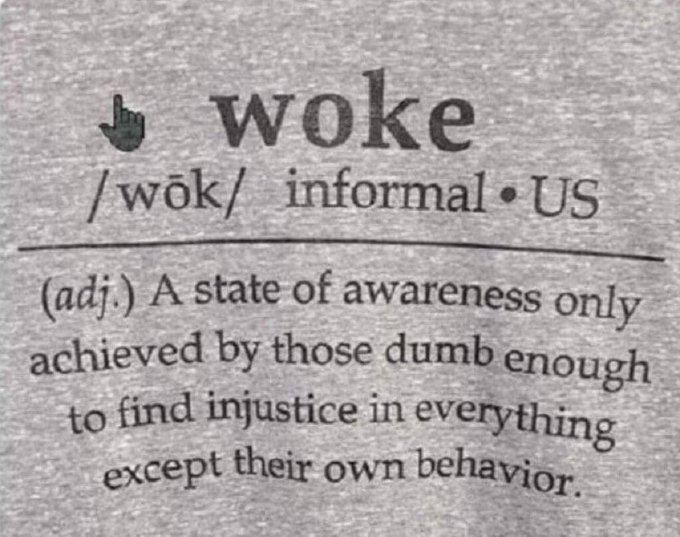I ran across two stories the other day, one of them about a mixed race man who looks like a female and another about a child with ‘werewolf syndrome’ who looks like the missing link—in both cases I thought about the negative attention this brings. In the later case, given the current awareness push, a young man who looks very feminine faces presumptuous comments about his ‘transitioning’ and I wondered at what age this happy kid would realize that he was a genetic freak? School children don’t need to be taught cruelty.
While I’m certainly not on board with the current “I identify as” phase, I also am not for alienating or adding to pain others have from being odd. What I’m talking about is the exceptions who are the exceptions by no fault of their own. Starting with those who are visibly different, dwarfs, albinos, Down Syndrome, conjoined twins, chimeras, Klinefelter syndrome (boys and men with extra X chromosomes), intersex people (born with ambiguous genitalia) or Turner syndrome. There are many chromosomal abnormalities and many issues that do put some in a “none of the above” category that is apart from what is most common.
We accept that physical abnormalities exist, it is pretty much impossible to deny, but the controversy begins when someone who has all of the physical characteristics of a man demands that other people use a female pronoun to describe them or competes as a woman. Genitals don’t tell me what goes on in someone’s head. My wife says that I’m “like a woman” in how I am expressive and emotional. My little sister was a “tomboy” growing up. I suppose today that would be proof that we deserve special protection or rights? How far can we tolerate people who do not meet expectations for their gender?
You don’t need a biologist to tell you that men tend to have a very distinct advantage over women in strength and size. It is not fair or safe for women to be in competition with those born with an XY chromosome no matter how they identify. I mean, isn’t that why women’s sports were created in the first place?
And, contrary to what the “Muh rights! You can’t make me wear a stupid mask in your private establishment.” people think, it is perfectly okay for groups to exclude those who have willfully refused to conform to the established standards. Try to walk into any church naked. They probably won’t even let you get to your explanation about material making you itchy or how Biblical prophets ran around butt naked. We set rules. We define categories. We decide if those with Swyer Syndrome are men or women. Click the link and give me your own answer in the comments.
Include or exclude?
It is our cultural bent to be more inclusive of the exceptions. We are taught that we must show empathy and understanding for those who are “born eunuchs” as part of Christian love. Then again, the Gospels are a sort of square peg being fit in the round hole of Scripture and it is easy to comprehend why the ‘chosen people’ rejected Jesus given how he mingled with the impure.
Biblical Exclusion
One reason why to be sympathetic towards those Jews who rejected the message of a teacher who ate with sinners is the Biblical tradition itself and the system it established to exclude those deemed defective:
The Lord said to Moses, “Say to Aaron: ‘For the generations to come none of your descendants who has a defect may come near to offer the food of his God. No man who has any defect may come near: no man who is blind or lame, disfigured or deformed; no man with a crippled foot or hand, or who is a hunchback or a dwarf, or who has any eye defect, or who has festering or running sores or damaged testicles. No descendant of Aaron the priest who has any defect is to come near to present the food offerings to the Lord. He has a defect; he must not come near to offer the food of his God. He may eat the most holy food of his God, as well as the holy food; yet because of his defect, he must not go near the curtain or approach the altar, and so desecrate my sanctuary. I am the Lord, who makes them holy.’ ”
(Leviticus 21:16-23 NIV)
And repeated:
No one who has been emasculated by crushing or cutting may enter the assembly of the Lord. No one born of a forbidden marriage nor any of their descendants may enter the assembly of the Lord, not even in the tenth generation. No Ammonite or Moabite or any of their descendants may enter the assembly of the Lord, not even in the tenth generation.
(Deuteronomy 23:1-3 NIV)
Discrimination against the abnormal wasn’t only suggested or caught in a round about way be misinterpretation, but a command from God. Talk about a kick in the nuts (or lack thereof) for those already suffering an undesirable condition. Be born the ‘wrong’ ethnicity or suffer an unfortunate accident and you’re out. Not much of this is actually explained, giving opportunity for apologists to explain around it, but Christian religion (along with modern science) has certainly taken things in a very different direction.
If a woman is ‘barren’ nowadays we try to treat the condition rather than assume it is a curse from God. I mean, yes, the woman in the Philippines who had the hair covered son with ‘werewolf syndrome’ may believe that it had something to do with eating a cat during pregnancy, the popular notion of “you are what you eat” manifesting, but we’re not as likely to see it as punishment from God—we do not tend to attribute things blindness or misfortune to sin. It is harder to exclude those who are imperfect when you realize it could’ve been you.
Any more than I need to know why Islam is different from Christianity, where someone was clearly copying some else’s notes, I’m not going to attempt to theologically explain the transition from Old to New Covenant. It is clear enough that those who had lawfully been excluded, the leprose, lame and blind, Jesus healed. The result of his ministry two millennia ago was a wave of tolerance that started with his Jewish converts. Peter had his pigs in a blanket vision (while hungry out on the road) and now we eat bacon despite Biblical command:
About noon the following day as they were on their journey and approaching the city, Peter went up on the roof to pray. He became hungry and wanted something to eat, and while the meal was being prepared, he fell into a trance. He saw heaven opened and something like a large sheet being let down to earth by its four corners. It contained all kinds of four-footed animals, as well as reptiles and birds. Then a voice told him, “Get up, Peter. Kill and eat.” “Surely not, Lord!” Peter replied. “I have never eaten anything impure or unclean.” The voice spoke to him a second time, “Do not call anything impure that God has made clean.” This happened three times, and immediately the sheet was taken back to heaven.
(Acts 10:9-16 NIV)
This, along with the Jerusalem Council, is a huge departure from Jewish Biblical religion and, again, it is no big surprise this new cult was rejected by the faithful. Even today some observant Jews continue the tradition, like that Orthodox chaplain who declared loudly as he took a seat (next to me) on a crowded airliner with mixed races, “I’m a racist and don’t care what you think!” My own cringe at this statement is born of an indoctrinated sensitivity, years of Christian influence, and not values arising naturally from thin air. Or, rather at least not without a sheet to carry it down from heaven.
Bacon To Bisexuals
The other day I saw a post, from a Muslim friend, and it listed the problems with eating pork meat, their unique parasites, what pigs eat, etc. Of course the winning comment was “but fried bacon is so delicious” and it basically for this reason why no Baptist will ever depart from pork consumption. If it is pleasurable to us, we do it. However, don’t dare use that reasoning with these same Biblical fundamentalists when it comes to things they’ve not be acculturated to. And not at all to say that bisexuality is now in that big blanket of tolerance coming down.
No, it is just interesting to me how Biblical law is largely ignored except where it makes sense to us. Don’t like tattoos? Well then it is okay to misapply those laws that pertain to specific ancient pagan practices. But if you like shellfish, then “freedom in Christ” exempts you from having to obey these outdated and irrelevant laws. The energy in the room is completely different when it comes to the violations of Scripture we’re unaccustomed to or don’t apply to our own circumstances. Sexual deviation is a whole can of worms that I’ll avoid until or at least until a good explanation of Swyer Syndrome is given to me.
One eyebrow raising moment, during a Bible study, while being brought into Orthodoxy, was when the topic of veiling (1 Corinthians 11) came up for discussion and how the old ethnic Russian priest dismissed it as being custom or cultural. I never had the chance to ask him about the explicit quotes of Saint John Chrysostom on the topic. But, like all things, what is important is a matter of our perspective. The cradle Orthodox follow after the mainstream of Protestantism as much as anyone else, whereas the converts from Protestantism are more strict about preserving Orthodox tradition. It’s amazing how culture influences our applications of Scripture.
All this to say that I don’t know where the precise dividing line is between pure and impure, acceptable or unacceptable. But believe there is much more value in being merciful as our Father is merciful. That is to apply the Golden Rule to those who struggle in ways that we can’t fathom or begin to understand. Where it was once okay to stigmatize and treat left-handed people as second-class or evil we now accept them and think it is strange it was a problem for past generations. There are many things that aren’t an identity we choose or a matter of “feel this way” (like a man who claims to be transracial) that require that us to show some grace.
“Ew, Brother Ew”
You’ve probably seen the meme. A Muslim preacher lamenting those who abandon the Islamic practices of eating on the floor and growing a beard. His comical expression of their disgust gets to the heart of what most of these religious do and don’t rules come from. There is a continuum when it comes to gender and normalcy, taboos change, as do ideas of what real men do. It’s funny to see how these standards have evolved over time. From the time pulpits had spittoons to the current time of rainbow flags, we are not the same as our ancestors.

There are natural aversions. We’re naturally disgusted by bodily fluids and it is for good reason. Disease travels in blood, saliva and waste. We are also attracted to beauty, the healthy form or good hygiene, this is about instinct and survival. Sexual promiscuity is also risk as well. So being grossed out can be beneficial if it protects us from negative outcomes. However, this can malfunction, sort of like an autoimmune disorder, where we can overreact and exclude on the basis of things that aren’t a danger to us. Bigotry and prejudice, like middle school fears of cooties, are often as sign of immaturity or lack of self-awareness. Attributing every unfortunate condition to a moral failure is not sound judgment.
Just because something is strange or ugly to us is not a reason to recoil. If a person is not trying to draw attention to themselves it is important to acknowledge their humanity rather than their odd appearance. We didn’t choose to be ‘normal’ anymore than it was a decision they made to be different. We do not need to pretend everyone is beautiful or affirm every exception as glorious. There is healthy, there is deformity and disorder, we can love the person who overcomes or does not give up for their character. It is possible for inner beauty to shine when we truly get to know the person rather than only see the outward appearance.








